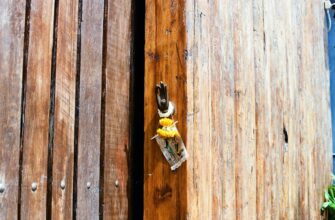## Why Your Private Key is Your Crypto Lifeline
Your private key is the ultimate gateway to your cryptocurrency holdings—a unique cryptographic string that proves ownership and authorizes transactions. Unlike traditional banking, there’s no customer service hotline to recover lost keys. Lose it, and your digital assets vanish forever. Guarding this key isn’t optional; it’s the foundation of true financial sovereignty in the decentralized world.
## The KYC Trap: Privacy Risks and Hidden Costs
Know Your Customer (KYC) protocols require identity verification through exchanges or wallet providers. While marketed as security measures, they introduce critical vulnerabilities:
* **Privacy Erosion**: Submitting passports, IDs, and selfies creates honeypots for hackers targeting centralized databases.
* **Censorship Risks**: Institutions can freeze accounts based on geography or arbitrary rules.
* **Unexpected Fees**: Many KYC platforms charge premium fees for “secure” storage or withdrawals.
* **Delayed Access**: Verification processes can take days, blocking urgent transactions.
True security means eliminating third-party risks—keeping full control without compromising identity.
## Low-Cost Private Key Protection: 5 KYC-Free Methods
### 1. Paper Wallets (Cost: ~$0)
Generate keys offline using open-source tools like BitAddress or WalletGenerator. Print or handwrite keys on archival paper, then store in waterproof containers or sealed envelopes. Pros: Immune to hacking. Cons: Vulnerable to physical damage/loss.
### 2. Hardware Wallets Under $60
Devices like Ledger Nano S+ or Trezor One encrypt keys offline. Setup takes minutes:
1. Buy directly from manufacturer (avoid third-party sellers).
2. Generate recovery phrase during initialization.
3. Never digitize your seed phrase—store it physically.
### 3. Air-Gapped Software Wallets
Install open-source wallets (e.g., Electrum, Sparrow Wallet) on a permanently offline computer or Raspberry Pi. Sign transactions via QR codes or USB drives. Total cost: Under $50 for recycled hardware.
### 4. Metal Seed Backup Plates
Stamp or engrave recovery phrases onto stainless steel plates ($10-$25). Survives fires/water damage. Combine with encrypted digital backups for redundancy.
### 5. Multi-Signature Wallets
Tools like Gnosis Safe require 2-3 private keys to authorize transactions. Distribute keys geographically (e.g., home safe + trusted relative). Attackers must compromise multiple locations.
## Step-by-Step: Create Your KYC-Free Security System
1. **Generate Keys Offline**: Use Tails OS (bootable USB) to create keys without internet exposure.
2. **Backup Physically**: Write seed phrases twice—store copies in separate secure locations.
3. **Encrypt Digital Copies**: Use VeraCrypt to create password-protected USB drives (never cloud storage).
4. **Test Recovery**: Wipe your wallet and restore from backup before funding.
5. **Regular Audits**: Check storage integrity quarterly and update methods as needed.
## FAQ: Guarding Keys Without KYC
**Q: Is avoiding KYC legal for crypto storage?**
A: Absolutely. Self-custody is legal worldwide. KYC applies only when interacting with regulated exchanges, not private wallets.
**Q: What’s the cheapest secure method?**
A: Paper wallets cost nothing. Pair with a $15 fireproof bag for robust protection.
**Q: Can hardware wallets be hacked?**
A: Extremely unlikely. They’re designed to prevent key extraction even if malware-infected. Always verify firmware updates via official channels.
**Q: How often should I replace my key storage?**
A: Only if compromised. Metal/paper backups last decades. Rotate hardware wallets every 5-7 years.
**Q: What if I lose my key?**
A: Without backups, recovery is impossible. This underscores the need for redundant physical storage.
## Final Thoughts
Guarding private keys without KYC isn’t just affordable—it’s liberating. By leveraging offline tools and disciplined storage practices, you eliminate surveillance risks while spending less than $60. Remember: In crypto, true security begins when you take ownership. Start small with paper backups, upgrade to hardware over time, and never let convenience compromise your sovereignty.








